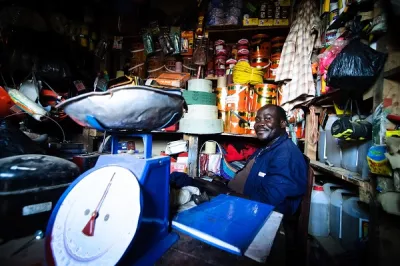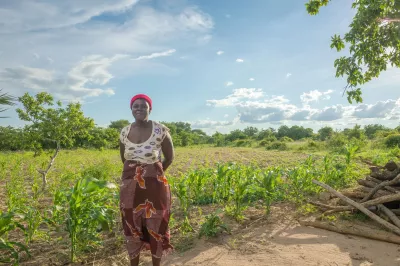Beyond Payments or Just Different Payments?
Everyone is always talking about trying to move the branchless banking industry beyond just payments. Those of us concerned with accelerating “real financial inclusion” long to see credit, savings and insurance products pushed over new delivery channels. But is it possible that there’s still work to be done within the payments space itself, just diversifying a bit beyond simple P2P transfers?
For example, I’ve been hearing a lot of talk recently about really trying to crack the nut on merchant payments. Branchless banking providers see this as a huge opportunity not only for increased transactions (and therefore revenue), but also as a way to solve some of the tricky problems around liquidity management at agent locations when more people use electronic value for direct purchases instead of just cashing in and out. But how do small merchants respond to the possibility of being brought into the formal economy through using a traceable payments service? Will merchants and customers be willing to pay a fee to transact electronically instead of in cash? These are just a couple of the open questions that still need to be answered.
I ran across the organization Venture Capital for Africa (VC4A) at a recent conference in Ethiopia. One of their recently profiled ventures is addressing some of these questions around moving past person-to-person transfers to merchant payments and other business transactions. The start-up Yo! Payments in Uganda is trying to connect the ecosystem and facilitate mobile money as a real “medium of exchange.” Read about some other pretty cool startups in the African mobile market here.
What about even fancier transactions than just merchant payments, like investments? At a recent African bonds market workshop in Nairobi, discussions involved the possibility of allowing mobile phone users to buy Treasury bonds through mobile money transfers. I wouldn’t bank your investments on this yet though, as the article was clear that “details are yet to be worked out” and this seems to be the sort of transaction where the devil is indeed in the details.
Maybe we should keep things simple, but just get more creative in the ways that transfers are originated or delivered via alternative mechanisms. For example, the National Payment Corporation of India (NPCI) has now been given RBI approval to facilitate money transfers from an ATM/Internet to a mobile phone via its Interbank Mobile Payment Service (IMPS). As the Managing Director and CEO of NPCI Mr. A.P. Hota explains,
The IMPS has so far facilitated instant inter-bank funds transfer between the sender and the receiver using the mobile. Now, following the RBI’s permission, the IMPS will also facilitate funds transfer from ATM to mobile and the Internet to mobile.
The nonbank e-money issuer Inova in Burkina Faso has just launched a partnership with Western Union – no small feat, by the way, for a relatively small company with much less bargaining power than the huge beast that is Western Union! The service allows Inova customers to receive money from anywhere in the world via Western Union directly into their Inova e-wallet. Inova users can also send money from their e-wallet via their mobile phone anywhere within the WAEMU region leveraging the Western Union network.
Perhaps by now you’re thinking that all of this sounds very familiar and uninspiring. But I think at a very basic level, mobile money does come back to facilitating payments that can be used for deeper financial services. Steve blogged about this a couple weeks ago regarding the use of mobile money in women’s savings clubs in East Africa. Apparently, this is already the case in Zimbabwe after the very recent launch of several branchless banking services over the past few months.
As one savings group member describes, in the past the women had to gather under a tree to make physical contributions.
Now the convenience of the mobile transfers means that we can coordinate our contributions without concerns about distance. Sometimes even if you have the money you will have no clue how to get it to the club members because our co-operative does not have a bank account like some groups in the city. I was in the city and was told about the use of mobile phones to transfer money. When I told the other women in my money club, it seemed to be the answer to our problems. The fact that we can organise ourselves as women in our co-operative through our phones is what matters.
That sounds pretty inspiring to me.
- Sarah Rotman




Add new comment